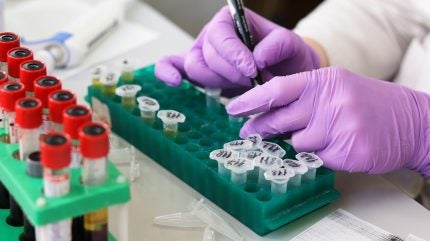
Anixa Biosciences has expanded its partnership with US medical centre Cleveland Clinic to develop additional cancer vaccines.
Cleveland Clinic is undertaking a Phase I clinical trial for triple-negative breast cancer, the most lethal form of the disease.
A vaccine for ovarian cancer, currently in pre-clinical stages, is also being developed by Cleveland in partnership with the National Cancer Institute.
The vaccines aim to immunise against “retired” proteins expressed in specific cancer forms. The goal is to destroy emerging cancer cells and prevent the formation of tumours.
Developed at Cleveland, the vaccines have been licensed to Anixa Biosciences.
Cleveland Clinic will receive royalties and other commercialisation revenues.
Access the most comprehensive Company Profiles on the market, powered by GlobalData. Save hours of research. Gain competitive edge.

Your download email will arrive shortly
We are confident about the unique quality of our Company Profiles. However, we want you to make the most beneficial decision for your business, so we offer a free sample that you can download by submitting the below form
By GlobalData
The new joint development agreement research will be led by Cleveland Clinic’s department of inflammation and immunity chair, Thaddeus Stappenbeck.
Justin Johnson, a co-inventor of the breast and ovarian cancer vaccines, will also be involved in the research.
Anixa chairman and CEO Dr Amit Kumar stated: “Cleveland Clinic is a valued partner to Anixa in the development of both breast and ovarian cancer vaccines.
“The progress we’ve made to date in the breast cancer vaccine programme, including promising preliminary data, drives our confidence in pursuing research and development for additional vaccines and cancer types using the same technology platform.
“Assuming the breast cancer clinical studies continue to exhibit positive results, we believe the search for ‘retired’ protein antigens will be pursued by many cancer researchers. We are seeking to maintain our lead in this potentially game-changing arena of cancer research.”

Sign up for our daily news round-up!
Give your business an edge with our leading industry insights.
